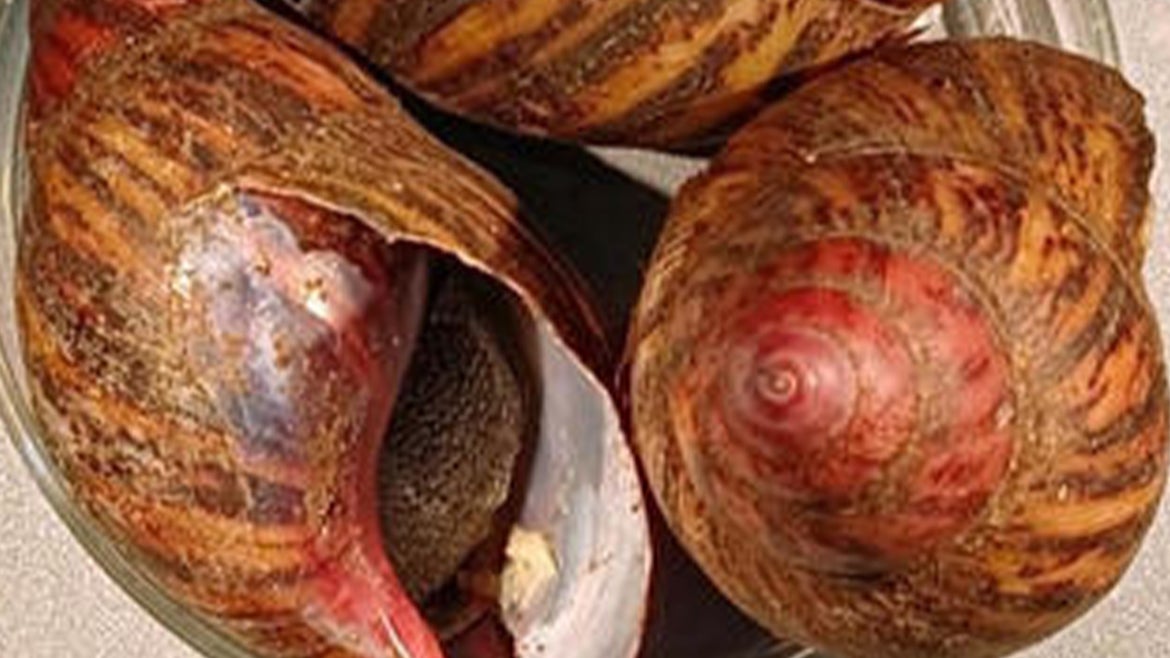"Our agriculture specialists remain vigilant in protecting the U.S. from foreign animal and plant disease that could threaten U.S. crop production and livestock industry or be transmitted to humans,” Houston CBP Port Director Shawn Polley said.
U. S. Customs and Border Protection (CBP) seized three zip-locked plastic bags containing 15 live giant land snails found in a passenger's luggage at George Bush Intercontinental Airport in Houston, Texas, officials said.
The snails, known as banana rasp snails, are capable of transmitting a parasite to humans that can cause rare forms of meningitis, CBS News reported.
The passenger, who was traveling from Nigeria, also brought a quarter-pound of beef and fresh leaves with her, a report said.
According to CBP officials, the woman initially declared that she brought dried beef with her, but later added the snails to her declaration.
Houston CBP Port Director Shawn Polley said his team confiscated the snails last month.
"Our agriculture specialists remain vigilant in protecting the U.S. from foreign animal and plant disease that could threaten U.S. crop production and livestock industry or be transmitted to humans,” Polley said.
The snails can grow to almost 8 inches in length and 5 inches in diameter, the USDA said on its website. They are known to consume at least 500 types of plants and can cause structural damage to plaster and stucco structures, according to the USDA website.
They also carry a parasite called the rat lungworm that can cause rare forms of meningitis in humans. There have been more than 2,800 cases of the disease reported in 30 countries, the Centers for Disease Control and Prevention said.
Cases have occurred in Hawaii and other Pacific Islands, though very few cases have been reported in the continental United States, the CDC said. A New Orleans boy in 1993 swallowed a rare snail, though the specific type of snail is unknown, and became ill a few weeks later, according to the CDC.
"He became ill a few weeks later, with muscle aches, headache, stiff neck, a slight fever, and vomiting," the CDC said. "His symptoms went away in about 2 weeks, without treatment of the infection."
The CDC said the parasite the snails carry cannot survive for long within a human body, and serious complications rarely occur.











